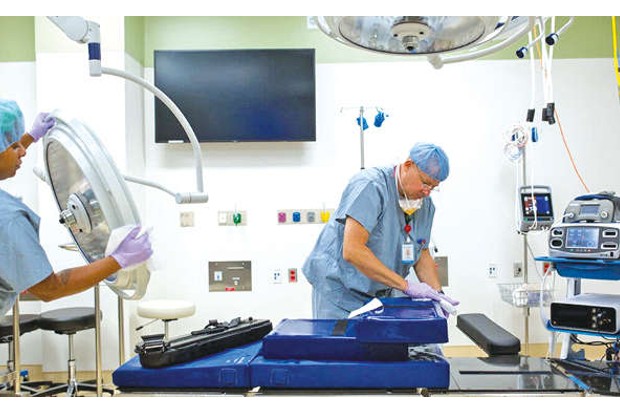Begin typing your search...
Considering bone or joint surgery? You may not need it
British researchers looked at studies of 10 common orthopaedic operations, including surgeries of the knee, hip, shoulder, spine and wrist.

Chennai
Considering bone or joint surgery? In many cases, surgery may be no more effective than options like exercise, physical therapy and drug treatments. Hip and knee replacements, surgery for carpal tunnel syndrome and other orthopaedic procedures are among the most common elective surgeries performed today, but they involve cost, risk and sometimes weeks or months of recovery. Many of these surgeries are not supported by evidence from randomised trials, a review found. Even when surgery has been shown to be effective, the review said, it may not be significantly better than non-surgical care.
British researchers looked at studies of 10 common orthopaedic operations, including surgeries of the knee, hip, shoulder, spine and wrist. They found good evidence of the superiority of surgery over other treatments for carpal tunnel syndrome and total knee replacement. For six other common surgeries, randomised trials found little advantage over interventions like exercise, weight management, physical therapy and drug treatment. The researchers found no controlled trials that had compared hip replacement or knee cartilage repair with non-surgical care.
“Our study doesn’t show that these operations don’t make patients better,” said the lead author, Dr. Ashley W. Blom, a professor of orthopaedic surgery at the University of Bristol in England. “And it does not say that treatments do not work if they have not undergone testing by randomised controlled trials. It’s just that some don’t work any better than the best non-surgical treatments.” Dr. Saam Morshed, a professor of orthopaedic surgery at the University of California, San Francisco, who was not involved in the study, said, “I think it’s fair that we hold the mirror up to ourselves and scrutinise effectiveness for some of these operations. It’s important to understand where we have gaps in knowledge of the efficacy or non-efficacy of common surgical treatments.”
At the same time, he said, “It’s also important to understand that just because there isn’t a randomised trial supporting a given treatment, that doesn’t mean that the treatment is not effective.” Hip surgery, he said, is a good example. There may be no randomised trials of hip surgery, but there is overwhelming observational evidence for its effectiveness compared with non-surgical treatment.
In other common procedures, the picture may be different. An arthroscopic operation to repair the anterior cruciate ligament, or ACL, in the knee, among the most common sports-injury surgeries in the United States, has a rate of success as high as 97 percent in some studies. But when the operation was compared with non-surgical treatments, the review found, there was little difference in pain scores or the need for further surgical or non-surgical treatment.
The researchers describe a large review of studies of the operation to repair the rotator cuff, the group of tendons and muscles that keeps the upper arm bone in the shoulder socket. Compared with exercise and steroid injections, the review found, there was little or no clinically significant difference in pain, function, quality of life or patient satisfaction with the results. Lumbar spine decompression is an operation to relieve the pain caused by a ruptured or bulging disk, sometimes called a pinched nerve, in the lower spine. Although the quality of the evidence was low, three analyses showed that surgery and non-surgical treatments provided equivalent improvements.
Visit news.dtnext.in to explore our interactive epaper!
Download the DT Next app for more exciting features!
Click here for iOS
Click here for Android
Next Story



